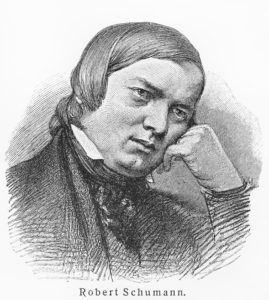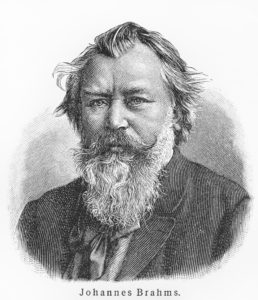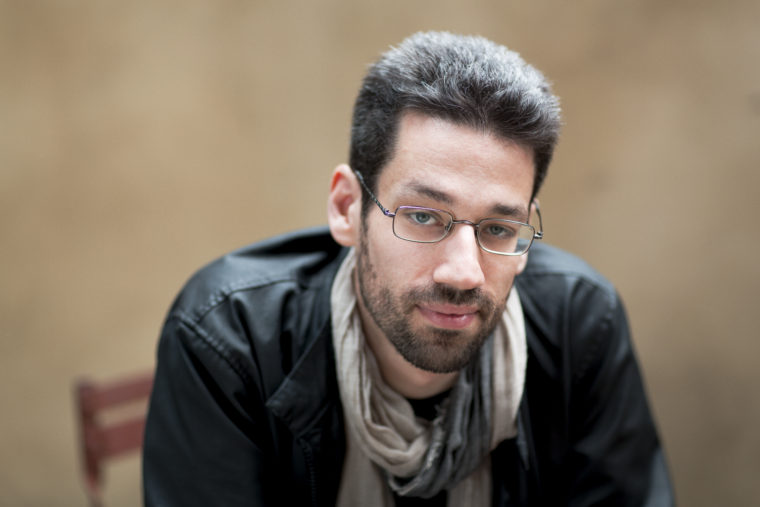The trajectory is always different.
In his final years, Frédéric Chopin (1810-49) moved from graceful Romantic reveries to bracing, dissonant textures. Robert Schumann (1810-56), his health in sharp decline, grew more intimate but also more restless and experimental. Johannes Brahms (1833-97) exchanged large-scale grandeur for subtle introspection.
“The question of ‘late style’ has long been of interest to writers and philosophers,” says pianist Jonathan Biss. “What effect do years of accumulated knowledge and experience, combined with, perhaps, the realization that death is near, have on artistic creation?”
At 7:30 p.m. Thursday, Feb. 9, Biss will explore that question with “Late Style,” a solo recital highlighting late works by Schumann, Chopin, Brahms and the contemporary Hungarian composer György Kurtág (b. 1926).
Presented by the Department of Music in Arts & Sciences, the program will launch Washington University’s new Great Artist Series, which also will feature recitals by Yefim Bronfman (April 23) and Nathan Gunn (May 5). All three performances will take place in the E. Desmond Lee Concert Hall.
In addition, the university’s Assembly Series will host a panel discussion titled “Late Moves: Music and Creativity” at 5 p.m. Wednesday, Feb. 8, in the Danforth University Center. Participants will include Biss as well as Dolores Pesce, the Avis Blewett Professor of music, and Brian Carpenter, professor of psychological & brain sciences. Todd Decker, professor and chair of music, will moderate.
Program

Biss notes that some composers reach their “late periods” as early as their 30s while others arrive in their 80s.
“The change is not consistent from composer to composer: some become more concise, others more expansive,” Biss continues. “Some become fixated on death, others find an almost child-like innocence. Some composers wrote their most adventurous music in their late periods, and others pursued an extreme simplicity.”
The program will open with “Gesänge der Frühe (Songs of Dawn),” Op. 133, Schumann’s final work for piano, completed in 1853, just three years before his death. Next will be selections from Volume VII of Kurtág’s “Játékok (Games),” an ongoing series — now in its fourth decade — of piano miniatures paying homage to the composer’s artistic and intellectual circle. That will be followed by “Polonaise-Fantasie,” Op. 61 (1846), one of Chopin’s final published works, inspired by the Polish dance.
After intermission, the program will feature three works by Brahms, beginning with the second movement from “Piano Sonata No. 3 in F minor, Op. 5” (1853), which the 20-year-old Brahms wrote while a house guest of Schumann’s. The program will conclude with two sets of piano pieces, “Klavierstücke,” Op. 119 and “Klavierstücke,” Op. 118, both of which Brahms wrote in 1893, or three years after announcing his retirement.
Jonathan Biss

Known for virtuosic energy and control, Biss has drawn worldwide praise for the “balance between clarity and wildness” (Kansas City Star) that he brings to both classic and contemporary works. His repertoire ranges from Mozart and Beethoven, through the Romantics to Janáček and Schoenberg, to commissions from contemporary composers such as Leon Kirchner, Lewis Spratlan, and Bernard Rands. His numerous albums include several recordings of Schumann as well as two short Kurtág pieces, included on “Piano Sonatas” (2009), which NPR Music named one of its best albums of the year.
Biss studied at Indiana University and at the Curtis Institute of Music, where he joined the piano faculty in 2010. A prolific writer, he is author of the best-selling ebook “Beethoven’s Shadow” (2011) and “A Pianist Under the Influence” (2012). He also led the first massive open online course (MOOC) offered by a classical music conservatory, “Exploring Beethoven’s Piano Sonatas,” which has reached more than 100,000 people in more than 160 countries.
Tickets and schedule
The Great Artist Series will continue April 23 with Yefim Bronfman performing music of Béla Bartók, Schumann, Claude Debussy and Igor Stravinsky. Nathan Gunn will conclude the series May 5 with music of Schumann, Samuel Barber, Franz Schubert, Hugo Wolf and Charles Ives.
Subscriptions to all three recitals are $90 and include premier reserved seating, post-concert receptions with the artists (when available), and all ticketing fees. Single tickets are $35, or $32 for seniors and Washington University faculty and staff, and $15 for students and children. Single tickets go on sale Sept. 1.
Performances take place in the E. Desmond Lee Concert Hall of the 560 Music Center, located at 560 Trinity Ave., at the intersection with Delmar Boulevard. Tickets are available through the Edison Theater Box Office, 314-935-6543, or at edison.wustl.edu.
